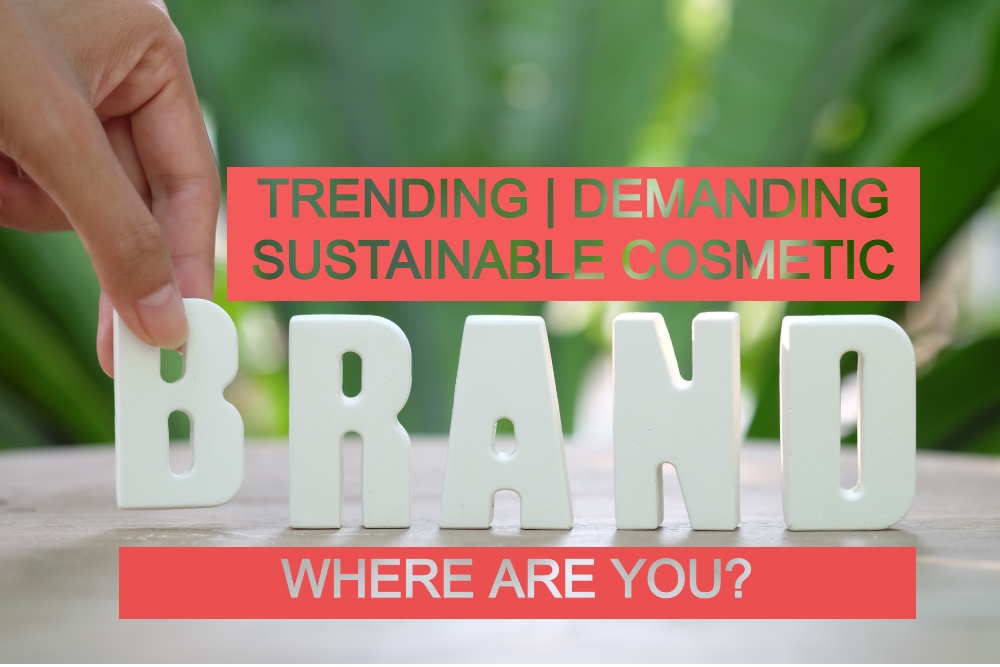How To Be On Winning Side, When It Comes To Sustainable, Trending & Demanding Cosmetics?
Sustainability in beauty is a necessity and involves both brands that produce natural-based products as well as producers of conventional beauty formulas. Interest in sustainability continues to rise, many cosmetic manufacturers are seeking more natural and environmentally-friendly emulsifiers and ingredients for their products. Companies are paying more attention to their ecological footprint and are committed to climate protection.
Firstly, let's try to understand this sustainability in general...
Sustainability is a broad policy and ethical concept that is commonly considered to have three dimensions: the environmental, economic and social dimension. In other words we can say that it means taking into account social, environmental and economic aspects throughout the whole production chain of a product to ensure an altogether positive impact. Sustainability is the balance between the environment, equity, and economy and it applies to almost every industry and the products they are making.
Why is sustainability in focus in the cosmetics industry?
The global cosmetics market is projected to reach nearly $680 billion dollars by 2025, and companies' focus is changing towards natural, organic, and herbal products. Companies in the cosmetics industry have started implementing a broad range of strategies that contribute to improving the sector’s sustainability. For example, the use of biodegradable, recyclable and reusable packaging continues to increase and packaging is designed more based on a life cycle thinking. Eco-design of formulas and packaging is encouraged.
Key areas companies are working to achieve sustainability...
Banning toxic ingredients: Cosmetic products often contain ingredients as directed by the regulatory thouritie's cosmetic labeling guide, and must adhere to the prohibited and restricted ingredient list in cosmetics. However, there are still toxic ingredients and contaminants found in many cosmetic products including carcinogens, types of formaldehyde, and chemicals that can disrupt hormones. Due to increasing awareness among consumers, companies are adapting and changing the chemistry of their cosmetics to include safer ingredients. This includes removing or replacing unnatural preservatives, emulsifiers, thickeners, or color pigments to create more safe and sustainable products.
- Ingredients like BHA and BHT, Coal tar dyes, formaldehyde-releasing preservatives, aluminum and dibutyl phthalate (DBP) are some of toxic elements found in popular brands.
Sustainable packaging models for cosmetics: Considering the ecological footprint and commitment to climate protection, Companies are researching ways of replacing ingredients with climate-neutral options and producing alternative packaging. In the last few years, many natural and organic brands have redesigned traditional cosmetic products to drastically reduce or completely avoid plastic packaging. Some examples of such innovative products are deodorant creams, solid shampoo bars and toothpaste. In addition to reducing plastic packaging, return models for used products are another way to avoid waste. If a certain number of empty packaging is returned, you can choose a new beauty product free of charge.
Embracing Eco-Friendly Manufacturing: Environment friendly packaging and sustainable ingredients are becoming more popular in the cosmetic industry. At every level of operations, companies are seeking to reduce organic and non-biodegradable waste in order to cultivate a positive brand image. Cosmetics companies are exploring eco packaging solutions and innovative processing techniques, particularly the on-trend tendency towards ‘upcycling’. Here are some of the practices that you as a cosmetic formulator / company can follow to make your contributions--
- Reduce synthetic ingredients and source medicinal plants responsibly.
- Purchase and promote sustainable and natural products.
- Switch to renewable energy for manufacturing.
- Redesign products to control wastage of precious natural resources.
Few other important steps which you as a formulator / cosmetic company can follow to come closer to your goal of sustainable brand includes –
- Increasing efficiency in the supply chain management
- Updating policies strengthen your commitments towards sustainability
If you are really serious and concerned about your goal of becoming a successful sustainable cosmetic brand, we highly recommend online training Formulate Sustainable & Demanding Cosmetic Products; Both Natural And Conventional Formulations which is worth to invest.

